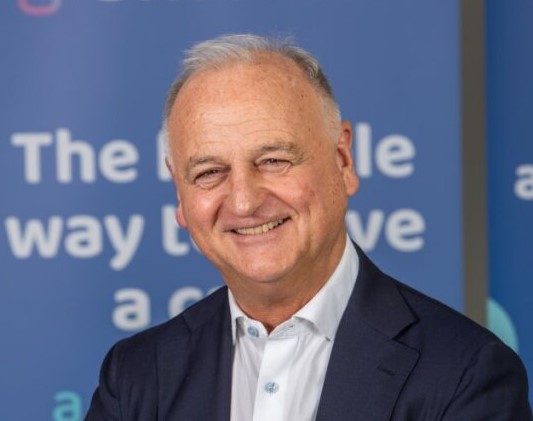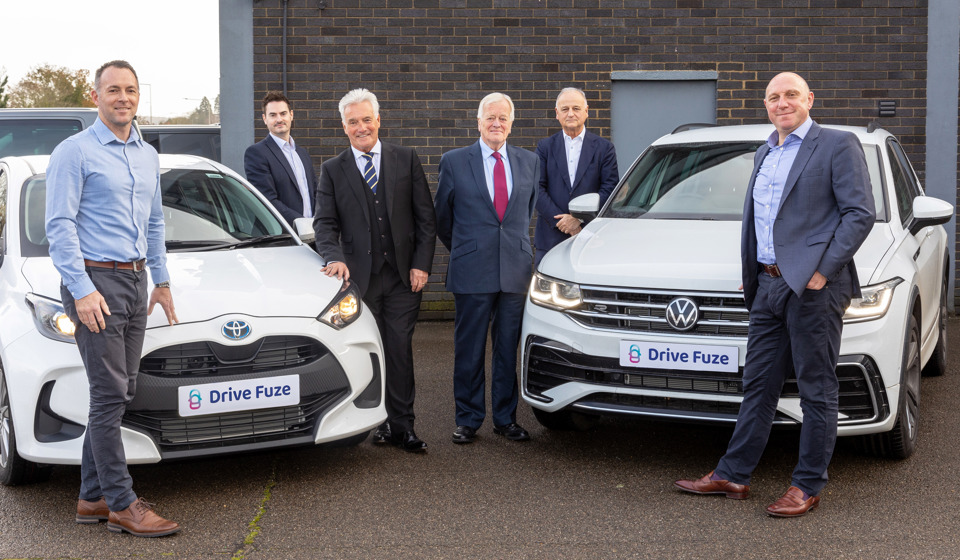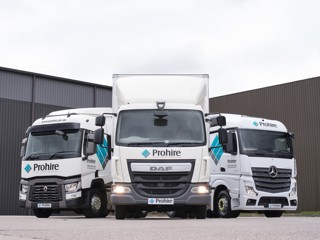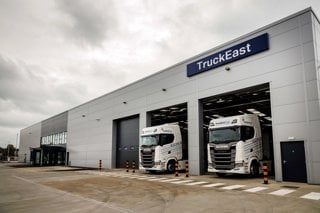Drive Fuze is offering its car subscription service and technology platform to vehicle manufacturers, leasing companies, rental firms and dealers as it looks to expand the business.
A year-and-a-half after providing its first car via subscription, it has supplied more than 1,000 vehicles and has a fleet of 500-plus vehicles operating in the B2C – business to consumer – market.
Now, keen to expand into the B2B – business to business – arena, Drive Fuze chairman, Nick Rothwell (pictured below), says having that proof of concept is vital when talking to potential partners.

He explained: “We are a tech company, but we’re also an operational excellence company that have done it and that gives us credibility in all of the segments that we’re targeting with a very best in class, proven, white label SaaS (software-as-a-service) solution.”
The car subscription solution is underpinned by its own modular software system that has been developed by a team with automotive experience right along the value chain.
Drive Fuze is both offering the service and technology via a white label product or are happy to be supplied with vehicles to join the Drive Fuze fleet.
In developing its own B2C offering, Drive Fuze did not take the residual value risk (RV) on vehicles, instead preferring to effectively sublease the cars it offered.
But as Drive Fuze expands its offering to B2B customers, it will also consider how it funds its own fleet in the future, with the potential to take that RV risk on vehicles itself.
“I think we would be remiss not to have that as an option in our armoury,” said Rothwell. “It’s not there yet, but it will be, I suspect, as we evolve.”
“We access vehicles from a variety of sources,” he explained. Vehicles, which can be new or used (up to three years old), are sourced through 12 suppliers on that basis, enabling it to “spread the brand proposition as well as the product offering of EVs, city vehicles, right through to SUV”.
Recent research, published by Pricewaterhouse Coopers (PwC), suggests that in the next five years, almost half (49%) of consumers would rather get a car via a subscription model than either purchase one, or acquire one via private leasing.
With a subscription, consumers avoid the high upfront costs of purchasing and get a more flexible, shorter-term commitment than leasing.
Subscriptions typically also come with additional products such as insurance, maintenance, and roadside assistance.
The interest in car subscriptions comes mainly from the younger market segment, with 85% of the demand for subscriptions for premium and luxury brands coming from the 18- to 44-years-old age bracket. For volume brands, this group still represents 61% of the demand.
Rothwell explains that car subscription services give customers “flexibility, freedom, control and reassurance”.
“If things change, if your lifestyle changes, if you move house, if you need a vehicle for three months in the summer, you can change your vehicle to adapt to those personal circumstances.”
For B2B customers such as leasing companies, the potential appeal of car subscription also means more flexibility and control in the event a lease does not go to term or if fluctuating RVs mean it makes sense to hold on to vehicles for longer and keep them earning.
“We looked through every customer lens, and built processes and technology that were able to satisfy everyone’s needs and wants,” Richard Baker, Drive Fuze
The Drive Fuze board – assembled by Rothwell, former chairman and CEO of Ford Credit Europe and former board director and founder’s advisor at Bipi – has extensive experience in managing car deliveries, collections, fines, repairs and servicing.
It includes Tony Bramall, former shareholder and chairman of CD Bramall and co-founder of Bramall and Jones, who recently sold his significant share in dealer group Lookers.
He has invested in Drive Fuze alongside the four founding members of Rothwell, CEO Martin Parsons, chief technology officer Richard Baker and Simon Withey, owner of Hudson Kapel 101 and co-founder of SMH Fleet Solutions.
Peter Jones is the investor representative on the board of Drive Fuze and former commercial director at Rover and Inchcape.
Chief technology officer, Richard Baker (pictured below), explains that its technology was developed with its different customer bases in mind.

“We had the customer that’s taking the vehicle, we had the customer from the perspective of a supplier that’s providing us with the vehicle, we have the customer through our third-party suppliers… and then I had the customer, which was our internal customer,” he said.
“We looked through every customer lens, and built processes and technology that were able to satisfy everyone’s needs and wants.”
Developed with a modular design, the technology is also easily adapted to a prospective customers existing systems and processes.
“We can manage the asset, we can manage fines, we can manage logistics,” continued Baker. “We can manage return processes, swaps, inspections. We can add and remove credits.
“We can add additional charges and remove additional charges. We’ve got automatic invoicing. We link in with Stripe, which means that we can do subscription invoicing as well.”
He added: “The shopping window is key, and that tends to be the bit that most SaaS offerings focus on, which is, ‘how can I acquire a customer?’.
“But actually, the magic is enabling your operational team to manage that customer and then also enabling the customer to manage things as well.”
Rothwell explains the subscription service can allow OEMs to target hard to reach customers, while giving dealers a different route to market with used stock.
It also provides a channel for leasing companies to “match their expectations and plans and where they are moving forward in the future”, he says.
“It gives you the second, third lease cycle that they currently struggle with in many ways, with legacy systems to offer and offer appropriately.”
He concluded: “This is about providing not only a mobility flexible solution, but peace of mind to people who need that in the current climate more than ever, and the people who see that - the distributors, the retailers, the providers of those vehicles - are the ones that will have relevance to today's consumer.”

























Login to comment
Comments
No comments have been made yet.